The best new albums this week
Albums you need in your life…
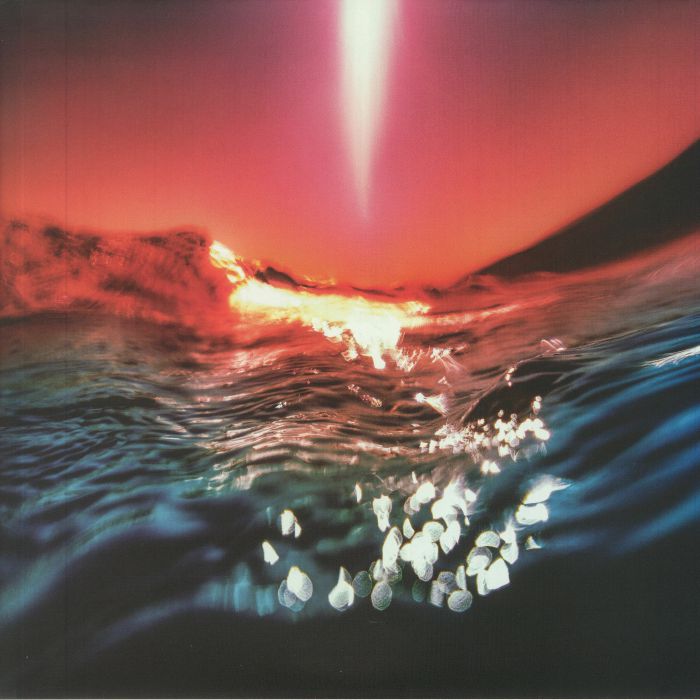
ALBUM OF THE WEEK
Bonobo – Fragments (Ninja Tune)
The imminent arrival of Bonobo’s seventh studio album has ignited a growing, harmonious chorus among those fortunate enough to be granted early access to the music. Such is the unquestionable gravity of the immaculately crafted collection, whispers of ‘Fragments’ being Si Green’s most complete work to date have grown into something of a clamour, and, for an artist of his distinguished pedigree, such comparisons are not to be taken lightly. Even in the dawn light of 2022, the album is slated to be one of the crossover electronic records of the year, with the label, Ninja Tune, billing it Green’s “most emotionally intense record yet.” Recorded during a period of crushing uncertainty, the unsettling epoch through which we’re collectively living forced a dramatic change of pace for the high-flying creator. For 20 years he’s been riding high as a solo act, and the last decade has seen him expand his performance capacity to incorporate an arena-filling live band. Not one of us has entirely escaped the turmoil of pandemic, but for someone with a schedule as densely packed as Bonobo’s, the change of pace has proven to be particularly pointed.
Having risen through the ranks of Brighton’s effervescent music scene before crossing the Atlantic to New York and then LA, where he now resides, Green’s seemingly frictionless ascent to the aggregated subconscious of the global underground has been filled with standout musical moments and production triumphs. From his 2000 debut ‘Animal Magic’ to 2017’s ‘Migration’, each of his albums has included its fair share of highlights. Thanks to the supreme quality as striking tone of ‘Fragments’, the five-year wait between instalments has been more than worth the wait, and, if critics are lauding the album as Bonobo’s finest hour, it isn’t especially difficult to hear why. Easing listeners in with a simultaneously delicate and forceful touch, the sublime harp strums and emotive string ensemble of opening track ‘Polyghost’ lay down a dramatic statement of intent. Next to arrive are the searing vocals of Jordan Rakei soaring above the wintry topography of bittersweet ballad ‘Shadow’, achingly soulful as the fluid melody cascades over granite rocks and stones. It isn’t long before the first of many latent anthems arrives, with the mesmerising vocals of ‘Rosewood’ stealthily tugging at the heartstrings as the effortless instrumentation unfolds, building to a Detroit-inspired crescendo as metallic chord stabs power through the stirring orchestration.
Green had spent long periods of lockdown isolation immersed in natural landscapes, camping in the Californian desert while reminiscing of his rural upbringing drinking by the side of a campfire accompanied by childhood friends. The nostalgia didn’t end there, with a portion of the album’s sonic impetus inspired by obsessive repeat listens to bygone mixtapes: infused with vintage UK future breaks, jungle, and bass music. These seemingly disparate influences are nowhere more apparent than in the jagged rhythms and drones of the fiercely affecting ‘Otomo’, with its alien melodies blending majestically with the rousing choral vocals as the hard-hitting beats carve out an irrepressible trajectory. Ushering in a stark change of pace, Jamila Wood’s enchanting vocal performance on the magnetic downtempo groove of ‘Tides’ overflow with poignant sentiment, as cinematic strings quench the once parched psycho-spiritual landscape. Continuing the celestially-charmed refrain, the gloriously seductive combination of harp and strings of the beat-less interlude ‘Elysian’ exude a fragile sense of positivity, irresistible as they elegantly intertwine.
Next, we find ourselves gently submerged in the blissful future garage flex and dream-inducing melodies of ‘Closer’, the lighter-than-air vocals joined by propulsive stabs and deeply rooted bass to create a wondrously evocative dancefloor meditation. Another track that rings the probable crossover bells loud and proud is ‘Age Of Phase’, its chopped vocals, melancholic waves and purposeful drumming mysteriously bridging the divide between club and living room. Japanese singer Joji makes an appearance on the utterly immersive ballad ‘From You’, before the haunting harmonies and celestial strings of ‘Counterpart’ captivate as they burst over bubbling acid and agile harp motifs. Edging us closer to a conclusion, the broken garage rhythms of ‘Sapien’ provide the bed for otherworldly lead melodies and distant voices to play out their alluring signal of hope. Finally, seeing out the album in style, the music once again organically drifts into soul-soothing ballad territory, as the Kadhja Bonet’s soothing vocal pours over the immaculately woven sonic tapestry of ‘Day By Day’, with its sub-focused bass and intricate layers eventually subsiding to allow the warm sax solo to dissipate into the infinite space.
PC
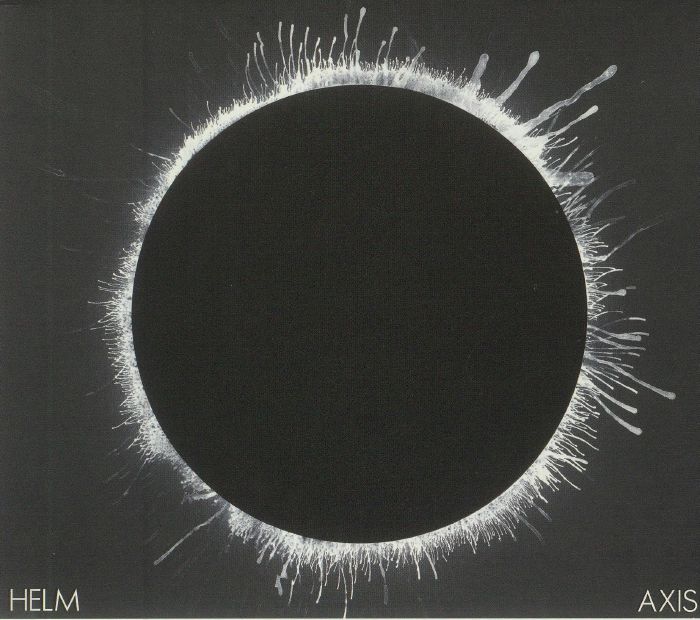
Helm’s dour, earnest image pays off this week, culminating in the 7-track noise-ambient album ‘Axis’. While this new gem, his 10th album, was made comfortably between the artist’s own kitchen and living room (as well as cult string sorcerer and industrialist John Hannon’s studio, No, based in Essex), it seems to harken more back to the artist’s anxious beginnings as a tape-recordist and basement noise-gig dweller, while at the same time transcending those humble origins to achieve something transhuman and cosmically terrifying.
Being that cataclysmic, the post-techno crunchings of ‘Axis’ seem to explore the recesses of a restless demiurge’s mind, on the brink of consuming a new planet. It’s like Galactus condensed into album form. From the opener ‘Para’ – in Latin, ‘beyond’ – to the closing ‘Tower’, all is ultimate and part-blinded by sonic rubble and distortion, as though the listener to Helm’s audio apocalypse has been scarred by the very same catastrophe.
Ritualised and cosmic moods are instantly conveyed by the eclipse-like front cover, seeming to reinforce Helm’s documented suspicion of “identity” in underground music. Solipsism-neglecting, all-encompassing sonic themes abound, like twinging doom zaps and riffing drone tritones, and are cranked and maximised to the maddening brink. Rather than latching on to any semblance of the humane or the humble, every sound on ‘Axis’ occurs ‘out there’. Even the up-close boiled kettle squeals on the opening track are reconciled into this otherworldly mix.
Likewise, even the album’s most peaceful track, ‘Crash’, has a mood of resting tension, while one of the few rhythmic bits, ‘Moskito’, feels spaghettified, its drums and impacts not disparate from the surrounding wildfire. It’s as though, for Helm, even moments of quiet are ruined by the inevitability of further chaos, like we’re looking out over some weak plane of heaven, tainted by ensuing, surrounding hell. We wouldn’t be surprised if ‘Axis’ is what we’d hear on crossing the event horizon of a supermassive black hole.
JIJ
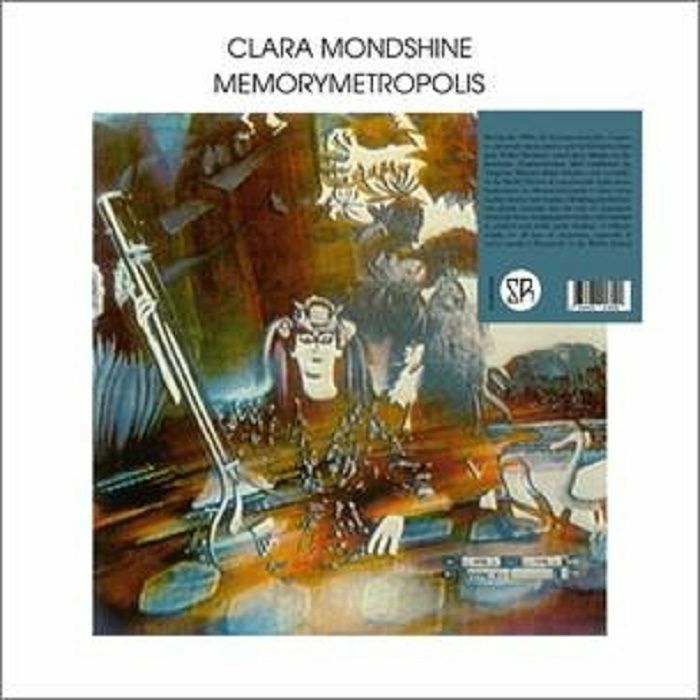
Clara Mondshine – Memorymetropolis (Survival Research)
In the legacy of German kosmische music, Walter Bachauer isn’t always the first name to be mentioned. He was however very much in the thrust of innovative synth music in the country, having founded the Meta Music Festival in West Berlin in the mid-late 70s and recorded staggering works under a range of different aliases. He also moonlighted with unspecified ‘electronics’ on the seminal krautrock masterpiece And The Waters Opened by Between. But it’s his albums as Clara Mondshine which stand tall as his proudest achievements before his death in 1989.
The first Mondshine album Luna Africana was reissued by Survival Research last year, and now they’re returning to focus on his second, Memorymetropolis. Considering it was released in the golden year of 1983, it embodies the groundbreaking spirit of the times with some frankly astounding synthesis and arranging which hasn’t aged a jot. Bachauer’s approach with Clara Mondshine is a kind of baroque world building, which especially comes to the fore on the spectacular ‘High Moon Enters Heaven’. Through a rich panoply of sound he creates a vivid biome teeming with alien organisms, and still finds time to create a melodic narrative bed for everything to twitter and chirp on.
On ‘Chipmania’ you get quite another kind of visionary behaviour as twitchy drum machine patterns and bleepy arps cascade around each other as though channelling the drama of Mozart and the palette of synth pop through an advanced electro framework yet to be established in 1983. This tension between propulsive rhythms and highly developed composition continue throughout, resulting in a staggering work which by rights should be hailed as a landmark piece in the development of electronic music. Equally though, such furtive curios and their discovery is what keeps the hunt for sonic gold so eternally fascinating, no matter how old the material.
OW
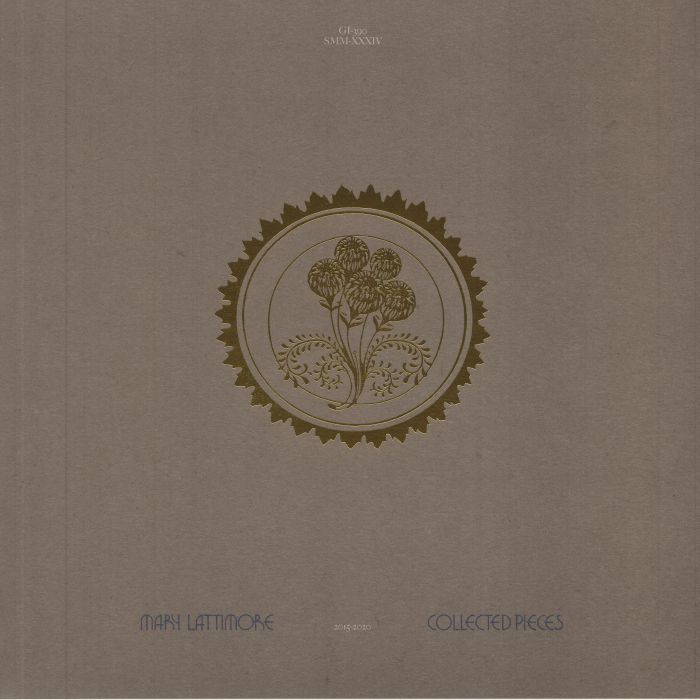
Mary Lattimore – Collected Pieces (2015-2020) (Ghostly International)
A companion piece to her last album ‘Silver Ladders’, this comp by Mary Lattimore contains some of the LA-based harpist’s rarer and more ‘in-the-raw’ cuts. The project spans a five-year period of recorded pieces that have been carefully re-arranged, a process which, for the artist, is like “opening a box filled with memories”.
While her prior projects, like ‘AVL’, were so densely laden with effects – chorus, reverb, echo, and imaging – that Lattimore’s harp sounded nothing less than otherworldly, this project (while not being without those effects) sounds much less polished, and much more ‘human’. The result is a more personal and intimate mood, bolstered by sentimental allusions to Lattimore’s own upbringing and favourite places. ‘We Wave From Our Boats’ is the second-to-first track that exemplifies this the most; her harp sounds entirely natural, ensconced only by the room in which it was situated during recording. Meanwhile, its intimate, riffing emo progression is made to feel all the more humble by the knowledge that she improvised this track after walking lonesomely through her neighbourhood at the beginning of lockdown in 2020, where she recalls feeling “compelled to wave at neighbours I didn’t know in a gesture of solidarity”.
As a theme, solidarity is endemic to folk music, and it’s a common thread that seems to run throughout this album. ‘We Just Found Out She Died’, while musically noting Lattimore’s shock at the death of Twin Peaks ‘log lady’ actress Catherine E. Coulson, could just as easily relate the hurt of discovering the death of a much-loved neighbour or relative to COVID, and mutually lamenting the loss. Admittedly, this track really does heavily draw on Badalamenti’s ‘Laura Palmer’s Theme’. ‘The Warm Shoulder’ is equally as folk-harmonious, only skimming the faintest and most tenuous of echoes while effortlessly pinning down a two-tone hook in the very first phrase. ‘Collected Pieces’ is lo-fi gem, not to be overlooked but rather celebrated for its rawness.
JIJ
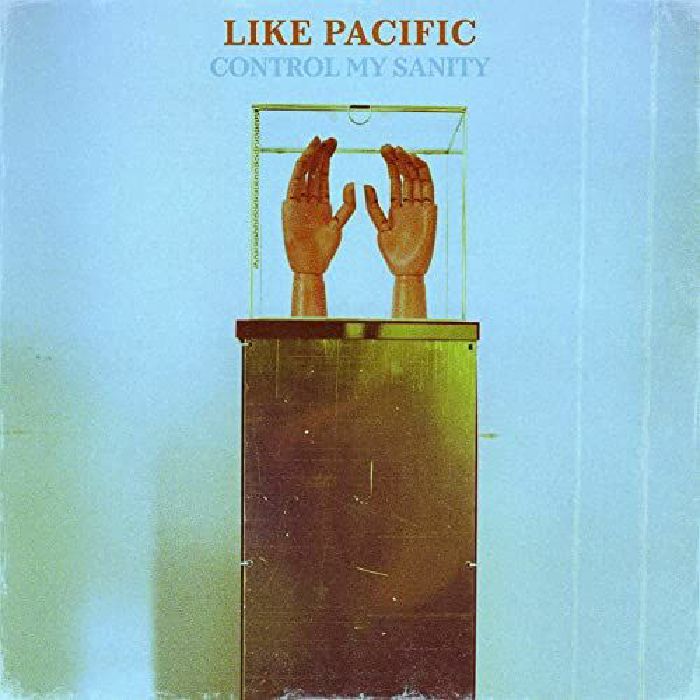
Like Pacific – Control My Sanity (Pure Noise)
For a number of listeners, the jury will be out on whether Like Pacific should know better by now. The Toronto-based punks have been around long enough to understand the need to innovate and switch things up, yet here we are on album number three, not really straying very far from the blueprint pop-punk greats created years back. Many of who, incidentally, have moved on.
But does that make this a bad record? Well, in a word, no. In fact, far from it. Control My Sanity could have been born at any point between now and 1993 — give or take. And it wears angst on its track list, with titles like ‘Ketamine Jesus’ and ‘Rest In Dirt’. Nevertheless, it does what it does very well indeed, with post- hardcore moments such as ‘Love Them and Leave Them’ standing out in particular. The biggest risk to the band, then, is not offending ears so much as ears losing them in a mass of similar sounding stuff, and that would be a crying shame. All the ingredients for something great are here, if you listen properly. Some have even been realised fully. But, still, there could and should be more.
MH
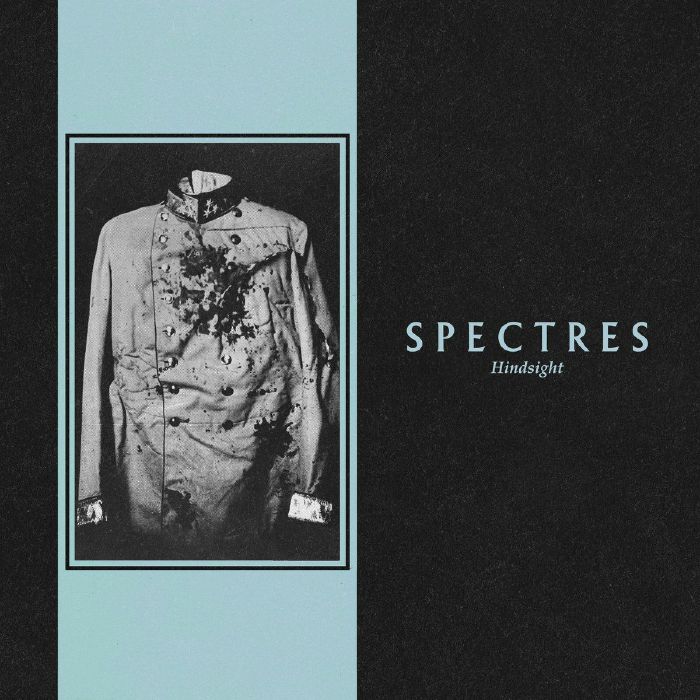
Spectres – Hindsight ()Artoffact)
We’ve noticed an exciting post-punk boom of sorts up along North America’s Pacific Northwest recently, for example Portland outfits Esses, Temple and Nyx Division, in addition to Seattle’s Nox Novacula and of course Vancouver-based Spectres, who return on Toronto’s Artoffact Records here for their second release.
Of the dozen tracks on Hindsight, we can section them off into three distinct parts. Representing their early years are songs such as the debut single Cold War from 2007, the moody swagger of ‘Message From Above’ and the straight-up punk attitude of ‘Complications’ from the following year. The track ‘Pattern Recognition’ is taken from a split EP with Arctic Flowers in 2010, which saw the quintet return to a darker sound.
Fast forward to 2019 and we have the addition of ‘Provincial Wake’ where they sound like a very different band, now more redolent of Movement era New Order, which is not at all a bad thing. The jagged guitars of yesteryear are replaced by more restrained melodics and even some occasional synths added into the mix. Another welcome addition to the compilation is three recordings from Los Angeles club night Part Time Punks, just before the pandemic hit back in early 2020 that capture the urgency of their live sets.
Rounding up the collection we have two brand new cuts which bring us full circle, such as ‘To The Victor’ and of course last year’s brilliant single ‘Tell Me’ which is sure to draw even more comparisons to the Factory Records icons they so clearly admire with its ‘Blue Monday’ style synth sound, a Peter Hook style bass line and even singer Bryan Gustavson’s Bernard Sumner-ish croon to boot.
While Hindsight isn’t exactly the fifth LP that many of their fans had anticipated, it’s still worth its weight in terms of the rarities on offer, charting the phases in their 16 year career and the evolution of their sound thus far.
MS
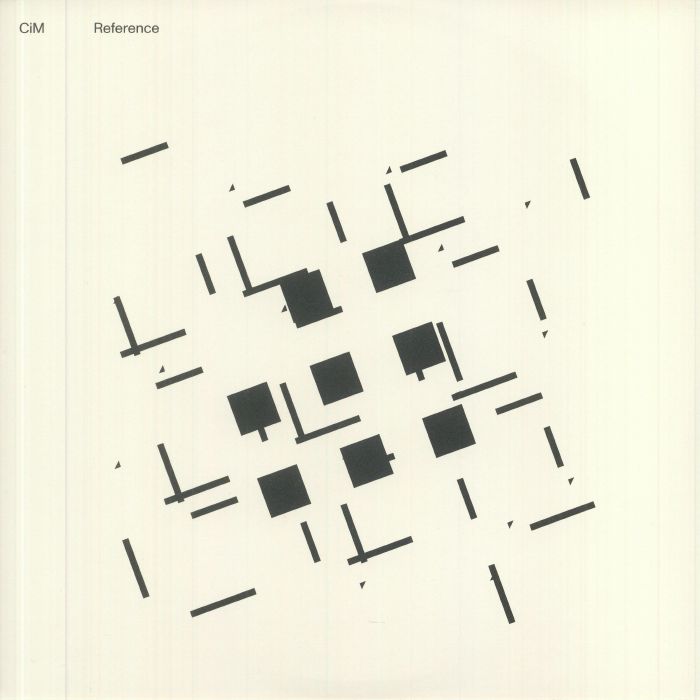
Delsin’s continued reappraisal of Simon Walley’s delectable electro works continues apace with this much-needed reissue of the 2000 album Reference. Last year they gifted us some dusted down archival material in the shape of Unselected ProTracker Mods, but this album remains one of the finest parts of the CiM oeuvre. Even after this refreshed outlook on his work, it feels like CiM is a cult concern for only the most attentive of heads to pick up on, but his music has a gorgeous approachable quality which by rights should take it much further.
On Reference the fundamental CiM sound is plain to hear – a mixture of clipped and crunchy drums with glassy melodic lines pinging into space and warm, gently dropped chord sequences. Although their styles are vastly different, there’s a curious intimacy and tenderness which calls to mind Jan Jelinek’s early works from Farben and Gramm to that under his own name. But there’s a twitchier, crunchier quality to CiM which is all his own, demonstrated perfectly on standout track ‘Swap File’.
The ideas on Reference glide by, with a lot of the tracks staying comfortably under the three-minute mark. These pieces were never made with functionality in mind, even if their lineage comes from the school of techno and electro in form and execution. This is a listening music for machine soul heads – an after hours twitch-out driven by bugging rhythms to dance across the surface of your brain. The luxurious lounge quality of the melodic composition, as heard on the likes of ‘Numerique’ and ‘Geosat’, is the binding agent, seeping the music into every fissure of the grey matter, ensuring the snuggest of fits.
OW
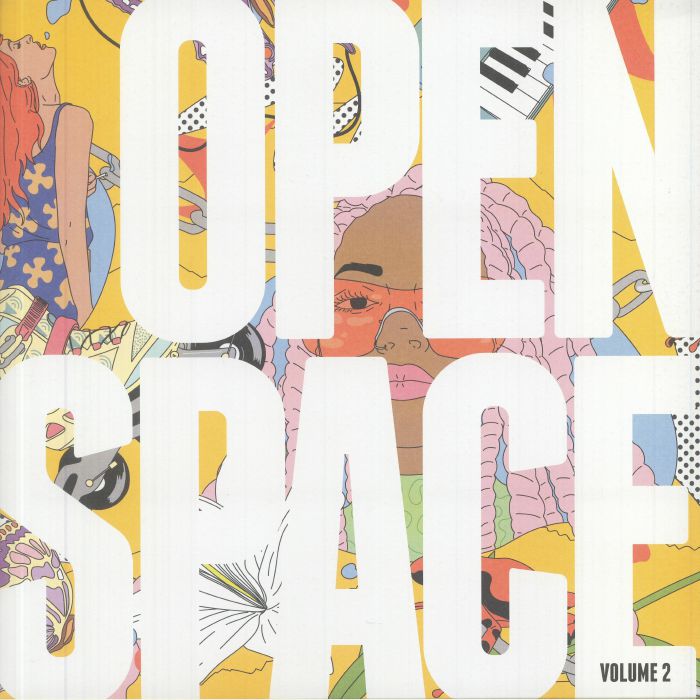
Various Artists – Open Space Volume 2 (Figure)
You wouldn’t normally expect to tap up Len Faki’s label Figure for a tastefully curated trip through contgemporary ambient, but after the strength of last year’s Open Space compilation it’s absolutely worth returning for round two. There’s still a link to the techno world across these 14 tracks, but the likes of Earthen Sea and John Beltran are of course more readily associated with the deepest strains of machine music. What makes Open Space Volume 2 interesting though is that the approach to ambient isn’t prescriptive, and leaves space for a diverse range of approaches.
Of course, the mighty Laraaji exemplifies ambient as a truly spiritual, soul-nourishing affair, while Exos deals in the kinds of meditative patterns which positively demand close-eyed reverie. The Album Leaf’s expansive kosmische is more indebted to live musicianship than electronic sequencing and KMRU creates a gorgeous, shimmering ecosystem of wraith-like sound. But there’s also space for the melancholic electro punch of Future Beat Alliance and Wata Igarashi’s sharply pulsing, albeit beatless, synth sculpture. The pitch is just right between engaging variation and consistent mood, making this compilation incredibly easy to sink into and catch a moment of calm.
OW

Various Artists – Sabor Surf Compiled by El Palmas y El Drágon Criollo (El Palmas Music)
You can almost hear Quentin Tarantino’s sigh of frustration at hearing this incredible, insightful and — dare it be said — educational compilation album. Still, the smart money is on the director still having a few flicks left in him, so perhaps we will get to see, or hear, tracks from this collection in his work. After all, this retrospective selection of surf rock ’n’ roll from South and Central America, found, collated, and released by Spain’s ever-essential El Palmas Music, sounds more Pulp Fiction than most of the actual Pulp Fiction score.
Well, maybe. You could also hear anything from Once Upon A Time In The West to El Mariachi in this. Strained guitars, those swaggering rhythms, and atmospheres that immediately set the scene among endless dunes, whether that’s a beach or the desert wilderness. From comparatively famous outfits of the early-1960s like Los Supersónicos and Los Impala, to lesser known groups that were part of the same ‘twist fever’, which took hold in both the Americas and Europe during this formative age of rock ’n’ roll, everything here is nostalgic and assured, at once evoking simpler times while remaining musically complex, not least considering the born on date.
MH
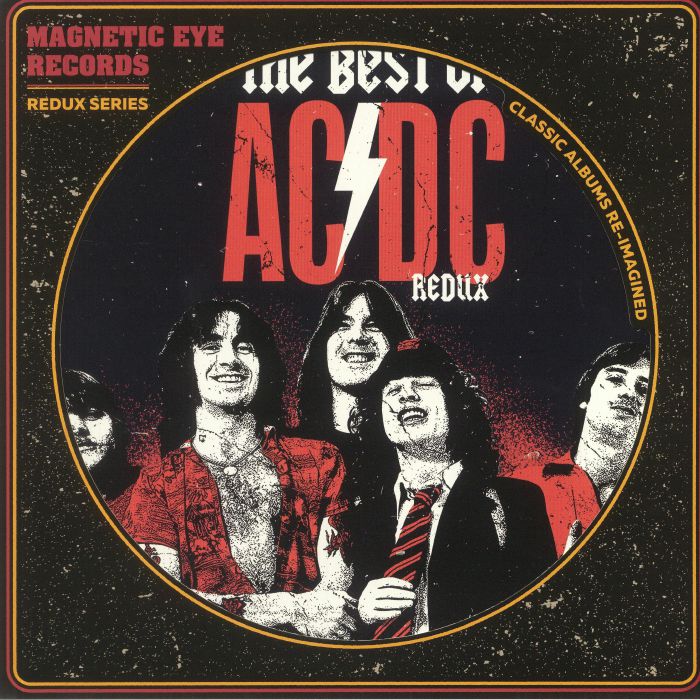
Various Artists – The Best of AC/DC Redux (Magnetic Eye)
If you’ve ever held a guitar the idea of covering AC/DC is intimidating. The Australia-via-Newcastle rockers may not be widely considered among the most intellectual metal bands of all time. Nor could you in 2022, and in all honesty, argue they’re breaking much new ground. The outfit’s sound hasn’t really changed since the heady mid-1970s. Nevertheless, the reverence this troupe command is unparalleled, with lead strummer Angus Young often cited among the 20th Century’s greatest guitarists, certainly one of the finest still alive today. His late-brother Malcolm, meanwhile, may not get quite so much attention, but as anyone who actually understands rhythm players will attest to, his talent was similarly phenomenal.
The Best of AC/DC Redux is less about these titans of stadium riffs, and songs about filthy women and even dirtier drinking, though. Instead, the focus here is on what those brave enough to step up and interpret those tracks have brought to the table. In many ways, the majority of what’s here offers the unthinkable — the might Decee, done by other groups. So we have Electric Frankenstein offering an oh-so-slightly faster take on ‘High Voltage’, Blue Heron’s heavyweight, doom-y interpretation of ‘Walk All Over You’, and a complex, layered rendition of ‘The Razors Edge’ by Ghost Ship Ritual, which, despite the depth and detail, is still defined by the original version’s relentless hook.
Other highlights unarguably include Domkraft bringing a Richard Hawley-cum-BC Camplight feel to ‘Night Prowler’, and the fresh, pub-punk delivery of Caustic Casanova on ‘Dog Eat Dog’. But what’s most remarkable about the compilation is the fact almost every track on here has anthem potential, yet the vast majority are among the lesser-known, or at least less jukebox-ed, of AC/DC’s repertoire.
MH
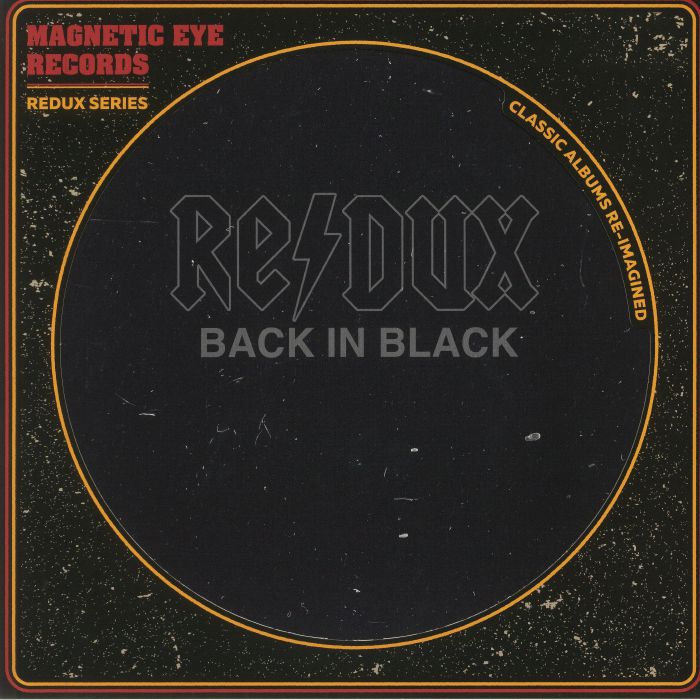
Various Artists – Back in Black (Redux) (Magnetic Eye)
Just when you think we’ve run out of ideas, along comes a total pearler. It takes (big) balls to cover a band of the standing of AC/DC, but this track-by-track remake of their defining 1980 ‘Back In Black’ album by the good and the great of the stoner/psyche/doom rock scene has knackers the size of boulders.
Portland’s Red Fang don’t disappoint with their swing at opening track ‘Hell’s Bells’, Swedish doomsters Besvärjelsen will slay you with their highly charged downtempo version of the title track, while the action-packed ‘Shoot To Thrill’ by Nashville’s Howling Giant is a complete joy. Their version reminds you just what a great song it is and the way they tackle the breakdown is epic. Think Fleetwood Mac’s ‘The Chain’. No really.
The standout though is Earthride’s ‘Rock And Roll Ain’t Noise Pollution’, it’s a proper peach. If the DC ever needed a Brian Johnson replacement, few would be disappointed if it was Dave Sherman (whose former band, Spirit Caravan, are one of Dave Grohl’s favourites, fact fans).
If you’re not familiar with Magnetic Eye, do check out their back catalogue as they have form, previously giving the underground Redux treatment to rock and metal classics including The Floyd’s ‘The Wall, Sabbath’s ‘Vol 4’ and Hendrix’s ‘Electric Ladyland’. Like we said, a total pearl of an idea.
NM
This week’s reviewers: Patrizio Cavaliere, Neil Mason, Mike Sheehy, Jude Iago James,, Martin Hewitt, Oliver Warwick